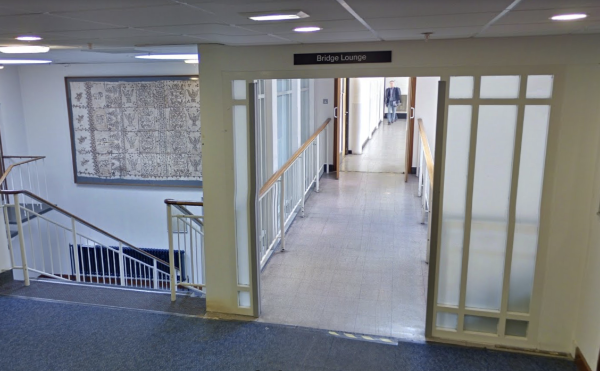If you’re going to swear in a drama, I think you should do it really early on in the episode. This is just a thought, obviously, but the only time I ever notice swearing is when it is in a drama and specifically when comes in late.
Well, there’s the famous scene in The Wire which has two detectives saying “fuck” in every possible connotation, expression and meaning, but after the first five or ten fucks you’re no longer watching detectives, you’re hearing the writer having a good time. And you do have to be a little conscious that Veronica Mars would’ve figured out the crime scene and be off again around an hour faster than these two.
I don’t tend to swear in real life and my problem with The Wire is not that it had swearing, it’s how the swearing in this specific scene broke the delicate little bubble that a drama lives in. There’s a moment in Star Trek: Picard where someone describes Jean-Luc Picard has having a fucking cheek, and it’s perfect. First swearing in 700-odd hours of Star Trek, and it’s perfect because she would say that, he did have a fucking cheek, it was actually a pinprick bursting a different kind of bubble and it’s possible that I may even have cheered. Certainly it helped me get into the story.
But although I remember that coming quite a bit into the episode, I also remember that it was one of the first things this particular character said. And I think that matters. To me, anyway.
There’s no special reason for why I don’t tend to swear, it’s not that I think I’m a family show or that I fear you’ll be shocked. I just don’t care about swearing and you wouldn’t, except it has caused problems. Countless times – okay, not very many but I definitely didn’t count them – a friend will, it seems to me, suddenly stop talking and apologise. It’s always because they’ve just sworn and they’ve somehow recognised that I don’t, but it’s also always, invariably, inescapably a mystery to me why they’re stopping.
If I had noticed the swearing, I wouldn’t care, but the reality is that I haven’t noticed. Now I sound like I don’t listen. But most of the time when people swear, it’s like small punctuation rather than some raging use of strong language. I am all for strong language, language should be strong, language is strong. So “Where did I leave my sodding keys,” just isn’t up there for strength.
Fine. That’s true in drama as well as real life, and my noticing Star Trek: Picard was less because it was the first swearword in – hang on, I can check this – yes, in 56 years of that show. It was more because it was right.
Only, I was watching a drama for work this week when, I think, about 15 minutes in, the lead character said “fuck”.
And it was not right. It jarred.
Apparently I can take it when an admiral curses at Starfleet Command in the 24th Century, but I can’t when a contemporary inner-city UK police officer does.
But it was wrong because, I think, it was said more for effect than anything else. There’s no way to know these things really, but I had such a strong sense that it was said explicitly to tell us that this was proper, grown-up drama.
And if you need to tell us that you’re proper, grown-up drama, well, you aren’t. Maybe that was really my problem here: this show that I am not naming felt like it was daytime drama. It didn’t seem as cheap as those have to be, but there was something, there was a patina that shouted daytime TV to me. It had this added patina of being contrived and somehow constrained, and it was also missing something.
It was missing the intangible something that makes you forget you’re watching a show and instead get into it.
Maybe if the show had been better I wouldn’t have been stopped and made to think all of this. As it was, more characters then swore at what felt like carefully negotiated intervals after that, and it was all too late. I had the sense every time from there to the end of the episode that when a character swore, what they really said was something like “Fuck that, look at me, I’m swearing, this isn’t daytime TV you know, this is great, be impressed”.
Children swear as they try to sound adult and you have the sense that they know the sound of the words, but not the meaning. That’s what I got here.
It’s not as if there can or should be a rule about anything, but I just wonder if I’d not have been so annoyingly knocked out of the story if the character had sworn at the start of the episode. I wonder if it would’ve helped us know her. And I’m quite sure that doing it this much later rather detached the swearing from the character and made it sound like an editorial decision, debated over by the writer and producer and director.
Obviously I can’t swear to that.

